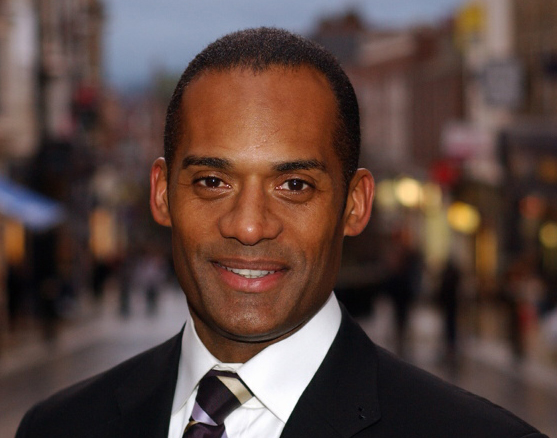Caroline Nokes – 2022 Speech on Black Maternal Health Awareness Week
The speech made by Caroline Nokes, the Conservative MP for Romsey and Southampton North, in Westminster Hall on 2 November 2022.
It is a pleasure to serve under your chairmanship, Mr Gray. I thank the hon. Member for Streatham (Bell Ribeiro-Addy) for leading this debate on a crucial issue.
The Women and Equalities Committee has twice held one-off evidence sessions—although there is a slight conundrum in twice having one-off sessions—looking at black maternal health. It has taken evidence from campaign groups, such as Five X More, and experts in obstetrics and gynaecology, yet the picture does not change. Looking at the evidence, we have known that there is a disparity in the health outcomes for black mothers since the early 2000s. For 20 years, we have known that there is a problem, yet still it continues. It has been a huge privilege for me to serve on panels alongside people such as Clo and Tinuke from Five X More, who have done so much incredible campaigning to highlight the issue, as has the hon. Member for Streatham. It is crucial that we begin to see progress; we cannot, 12 months or 10 years down the line, continue to have the same debate.
Raising awareness in Parliament is vital, but what we actually need is Government action. The hon. Member for Streatham made a slight dig about Government reshuffles. I am delighted to see the Minister in her place; this is an issue on which we have engaged before and she takes it seriously. I hope that the Secretary of State for Health will himself grasp the issue, and ensure that we drive it forward to see progress.
We have heard that one of the challenges is data, and the lack of specific data being collected on maternal health outcomes for black and Asian women. I pay tribute to Five X More, which carried out its own experiences survey that included 2,000 women—a huge number—reporting their experiences and findings. The thing that really hits home for me is the repeated use of the phrases, “I didn’t feel listened to,” “We weren’t listened to,” and, “What I was experiencing was being ignored.”
I am loth to say that we sometimes have very gendered healthcare, but look at the evidence. Look at the fact that when there is medical research, it is almost exclusively carried out on men; look at the fact that drug trials are carried out on men; look at the fact that some of the highest backlogs as we come out of the pandemic are in health conditions predominantly affecting women. Whether it is in cardiac, obstetrics or another sphere of medicine, too often the experience is, “I didn’t think they were listening to me.” I am sure every Member hears that from their constituents, and that has been my experience as a constituency MP. I hear from my constituents that, specifically in the area of maternity, “I wasn’t listened to. Nobody paid attention. It was my body, and I knew something was wrong.”
Only last week, I received an email from a constituent who had lost his daughter-in-law moments after she gave birth. He was with his son, helping to bring up a baby and pursue a complaints procedure against the hospital in question. Throughout his email, he kept making the point that they had not been listened to. His daughter-in-law had been a midwife, and even she was not listened to.
Talking to black and particularly Muslim women—I should declare an interest as chair of the all-party parliamentary group on Muslim women—they feel that their voices are doubly ignored, and that there is that intersectionality. Whenever I talk to journalists about intersectionality, they look at me and say, “Please don’t use that word. Nobody understands that word.” It is imperative that we all understand that word. You will be discriminated against if you are a woman, and you will be discriminated against if you are a woman from a black, Asian or other minority ethnic group; when the two come together, as we find in maternity units in particular, women’s voices are not heard or listened to.
When we talk to the Royal College of Obstetricians and Gynaecologists, as the hon. Member for Streatham has done, it calls for specific targets for black maternal health outcomes, and it is right to do so. Although it may be a small number as a percentage of births every year, it is still a significant number. The loss of one mother is one too many.
Jim Shannon
It is always a pleasure to listen to the right hon. Lady; she brings lots of wisdom and knowledge to these debates. Ministers in other debates we have had in Westminster Hall, in different positions in the Department of Health and Social Care, have always spoken about the issue of data. The hon. Lady is outlining examples of where data could be used to formulate a Government and ministerial response. Does she agree that the Government really need to grasp the data issue? They can then prioritise their strategy to respond.
Caroline Nokes
I thank the hon. Gentleman for his intervention. I did not think he would be entirely able to resist speaking in the debate. He is right: policies must be data-driven and evidenced, but the evidence is there and has been for many years. We are augmenting and adding to that body of evidence the whole time.
I will not be entirely negative, because we have some great opportunities. I was pleased to see Dame Lesley Regan appointed women’s health ambassador earlier this year. I welcome, reinforce, champion and offer anything I can to help the women’s health strategy. Finally, we have one of those, and I pay tribute to the Minister who was instrumental in getting that published. What we now need from the strategy is outcomes. That has to be the focus. What is happening to drive outcomes, and to ensure that the disparities we know exist are recognised, acted on and reduced? Our goal has to be to reduce that horrendous figure of four times as many maternal deaths for black women. We have to improve the outcomes for black babies, so that there is not, as I think the hon. Member for Streatham said, a more than 100% likelihood of stillbirth—
Bell Ribeiro-Addy
Increased risk.
Caroline Nokes
Increased risk. The hon. Lady is absolutely right to highlight that as an imperative. We must ensure that we reduce the inequity, of which there are many drivers. She was with me when the Women and Equalities Committee took evidence from Professor Sir Michael Marmot, who talks so compellingly about health inequalities and their drivers.
I will not say that there is anything wrong with black women’s bodies—there is not—but we have to look at housing conditions, air quality and the areas where they live. Air quality is a significant driver of poor health outcomes. We have to look at what we are doing around smoking cessation, which is good for not just black women, but all women. We have to look at obesity, which is, again, a crucial factor for all women.
I look forward to seeing, in the remainder of this Parliament, focused and determined action around obesity, smoking cessation and air quality. There are targets on all those things, but—how can I put this gently?—there has been a little backsliding on some of them. Targets have been pushed into the dim and distant future, and there is less commitment around drives to reduce obesity and smoking, which are incredible drivers of poor health outcomes across the population. We should double down on our commitment to those targets.
I hope that in due course—I get fed up of saying “in due course”, which is a standard ministerial answer—to see a White Paper on health disparities. It is imperative that we get that done, and that the women’s health strategy is seen as a driver to ensure that we improve outcomes. First and foremost, I reiterate the calls from the hon. Member for Streatham for targets. I am never a great fan of targets if they are just there for the collection of targets, but if they work, and we see that in many instances they do, we should have them.
We should have time-limited targets, so that in maybe three years we can look and say, “Nothing has changed.” Looking at the data and the evidence from campaign groups, I see that over 20 years, nothing has changed. I do not want to be here in 20 years’ time giving the same speech on this important issue, feeling that nothing has changed. I look forward to the Minister’s comments, and reiterate my congratulations to the hon. Member for Streatham on calling for today’s debate.


